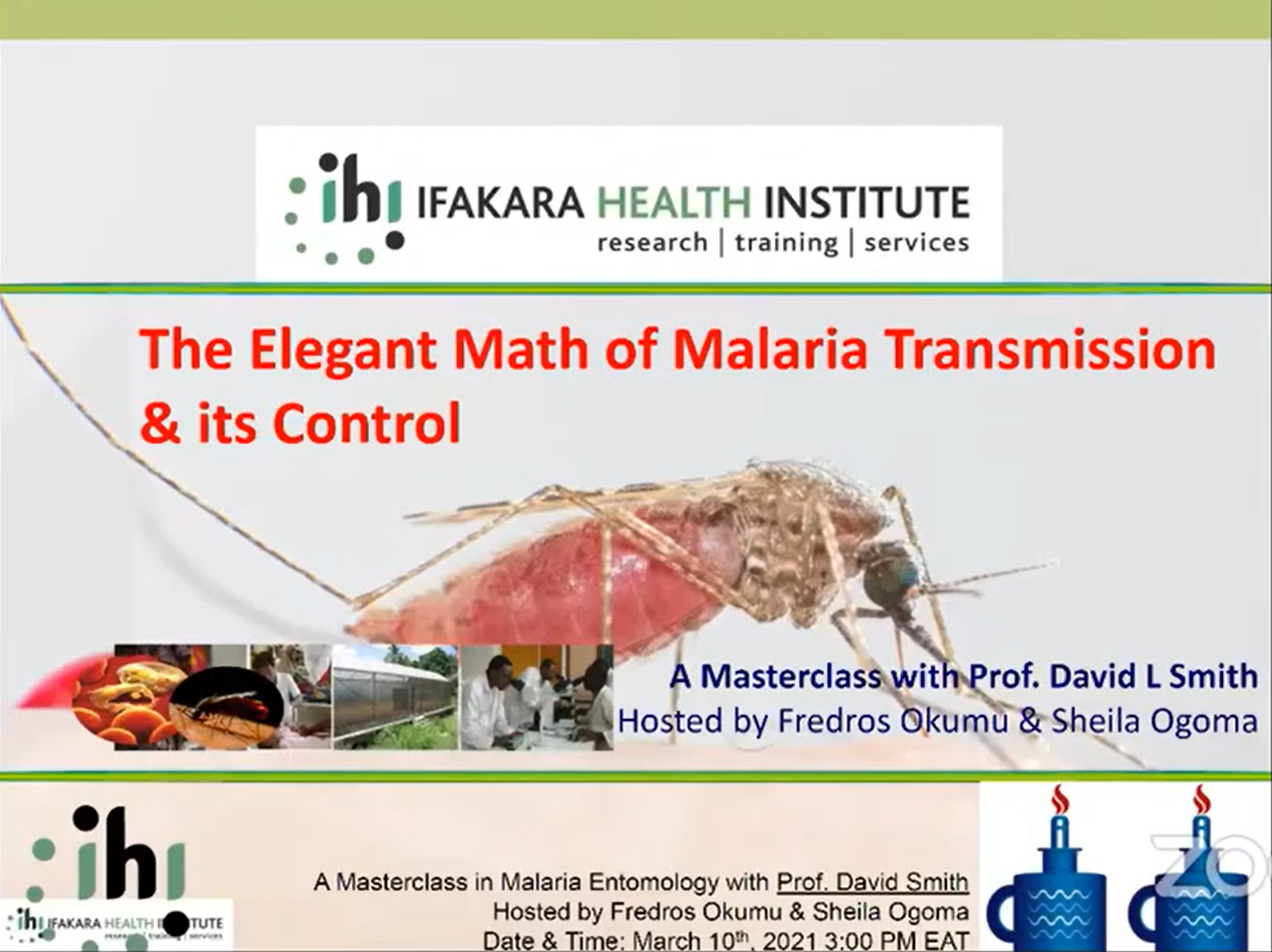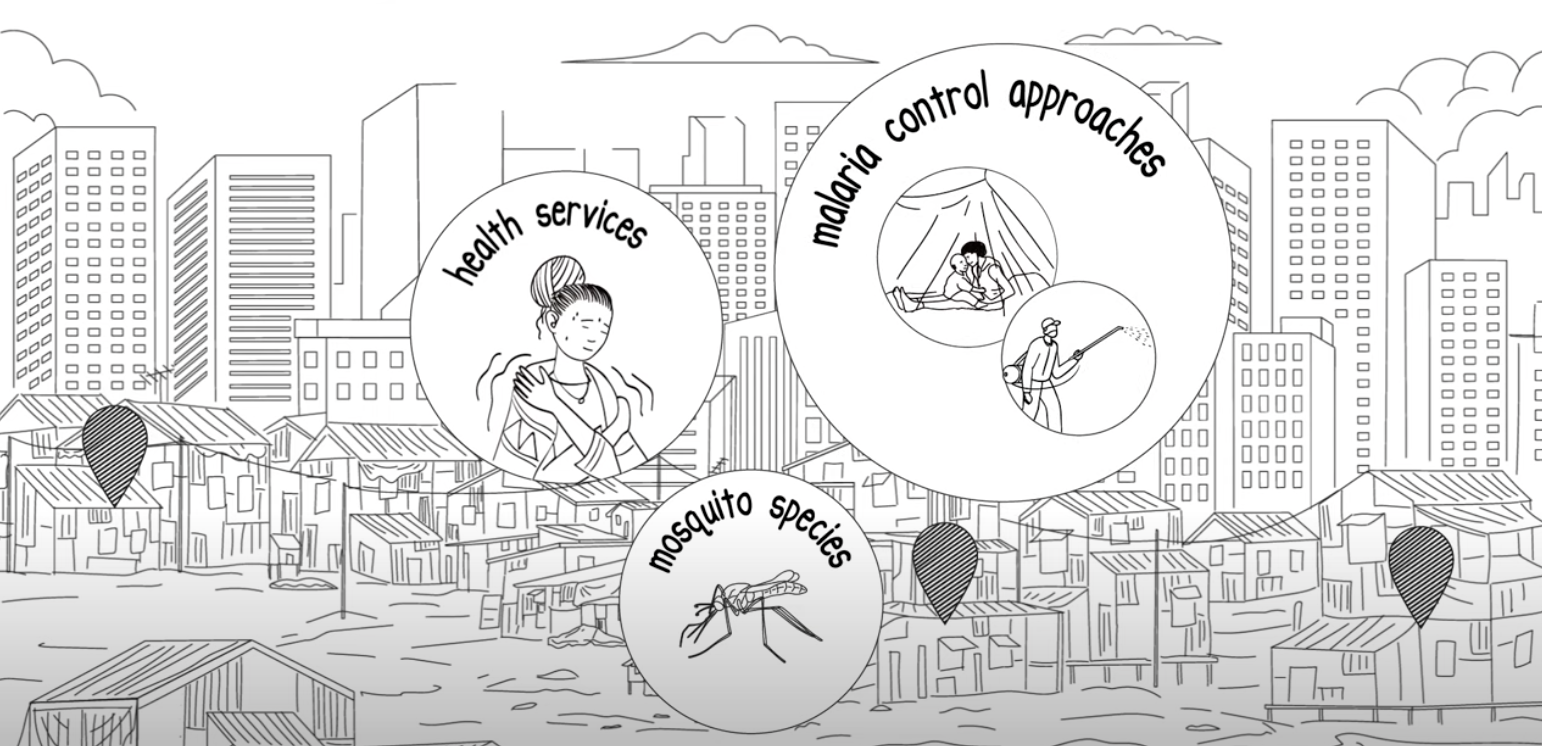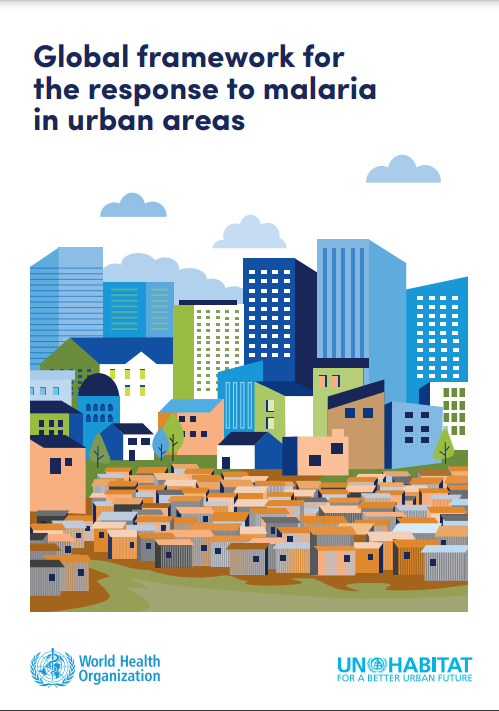Last Updated: 28/08/2024
Spatial targeting and adaptive vector control for residual transmission and malaria elimination in urban African settings
Objectives
This project aims to develop adaptive vector control as a rigorous and quantitative methodology to help programs understand residual transmission, build an evidence base, and identify strategies to suppress residual transmission and eliminate malaria.
Specific objective: To quantify residual transmission in the urban setting of Malabo, Bioko Island the capital of Equatorial Guinea, where 90% of the residents of Bioko Island live, and use that evidence to guide vector control through an iterative, structured policy process.
The malaria control program on Bioko Island, Equatorial Guinea was among the vanguard of highly intensive and highly successful malaria control programs in sub-Saharan Africa. Intensive malaria control began in 2004 under the Bioko Island Malaria Control Program (BIMEP) manages commodity distribution, surveillance, monitoring, and evaluation to eliminate malaria from Bioko Island. After initial success, the program has documented slower progress, and malaria persists through residual local transmission by vectors and frequent travel to mainland Equatorial Guinea resulting in malaria importation. There is a significant need to develop a methodology that would allow BIMEP to improve malaria control through spatial targeting and rapid development of an evidence base to reduce residual transmission and guide elimination efforts across transmission contexts. A practical solution, called adaptive vector control, that combines elements of integrated vector control and adaptive management.
Existing evidence will be used from surveillance, monitoring and evaluation to develop, validate, and analyze dynamic models of mosquito aquatic habitats, mosquito population dynamics, and malaria transmission in the city. The models will be used to design adaptive sampling and adaptive studies to reduce uncertainty about programmatic decisions, and through simulation-based analytics, it will help the program to improve spatial targeting of indoor residual spraying and larval source management. Finally, the study will use the methods to build an evidence base to support enhanced vector control with novel vector-based interventions to help BIMEP eliminate malaria. The challenges of reducing malaria incidence in Malabo and on Bioko Island are similar to the challenges faced elsewhere in sub-Saharan Africa, and adaptive vector control is one way of addressing the problems of urban vector control in the African context.
Jun 2021 — May 2026
$2.59M


